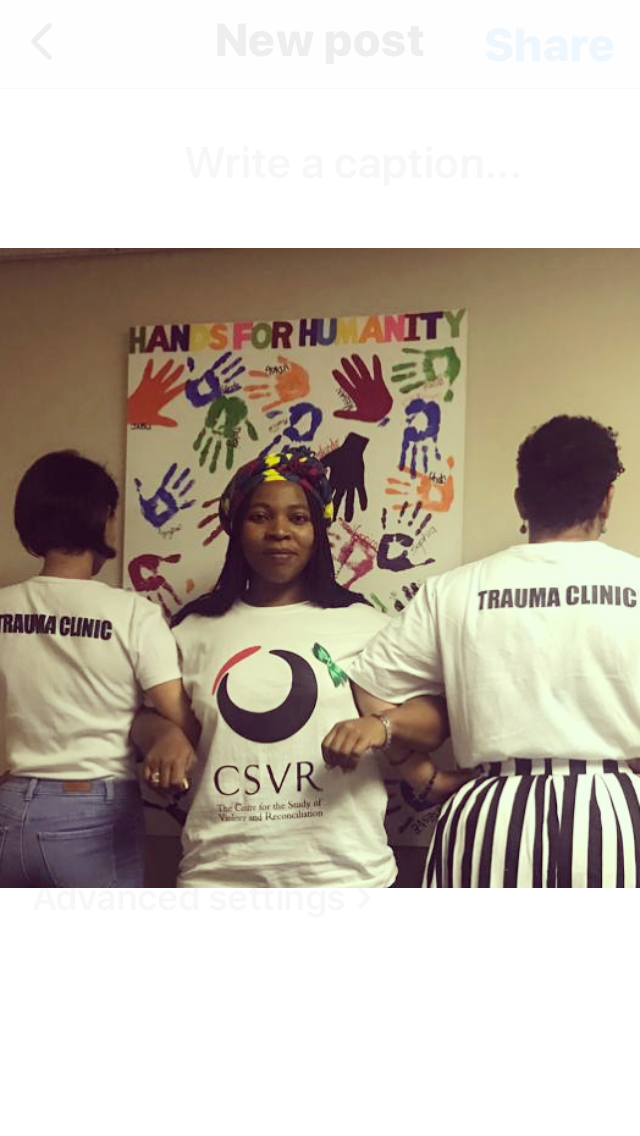1 in 3 South Africans will suffer from a mental illness in their lifetime (South African Depression and Anxiety Group)
Suicide is the second and “fastest growing” cause of death amongst 15-24 year olds (Mental Pressures can force youth into suicide-Karabo Ngoepe-Sunday Independent News).
Today marks World Mental Health Day, the theme for this year is ‘Young People and Mental Health in a changing world’. Reflecting on this theme, two thoughts come to mind: the increase of suicide rates amongst youth in universities across the country; and the stigma of mental health which continues to persist in our society. As a psychologist working with youth, depression is noted as a common feature, and as we hear more and more about youth suicides, there is a need to explore and understand the links between depression, youth and suicide in our society today.
Speaking to various mental health practitioners in the field working with youth, discussions have been around the societal pressures that youth face. The pressure to be smart, fabulous, a slay queen on social media, a real man, a successful academic. These pressures combined with financial pressures and limited social support structures has an impact on youth’s ability to navigate their social and personal world. Other practitioners have had conversations with youth, who have related their mental health struggles to issues of worth and purpose. As youth, feel they have no role to play in society today. In comparison to youth in the past that fought for Freedom. Highlighting an identity crisis where society cannot grasp what they are becoming or what is needed for them. They are referred to as the ‘millennials’, often thought of as lazy, not as robust as the generations before, having a sense of entitlement and lacking a hard work ethic. And the more connected they are through social media and other platforms of connection, the more isolated and disconnected they appear to be from their peers and even more so authority structures such as Universities, Government and even social support structures in society. Youth have found it hard to take their struggles to these platforms, feeling people don’t care, youth are seen as not doing enough, ‘the generation before did it why can’t you?’ And this often leaves them feeling alone and stuck. Reflecting on the incidents of suicide in this year amongst youth, many thoughts of why come to mind. Didn’t they have a friend to speak to? Someone to hear their cry? No one just decides to kill themselves, depression has a starting point and intervention can make a difference. So why is intervention happening too late or not at all.
The silence around mental illnesses is still a major problem in our society. And more so amongst our youth. As mental health issues in youth are often brushed aside (‘you will get over it’; it’s just a phase’), misunderstood and not received empathetically. As youth report that they are seen as weak if they are not coping, or pretending to cope. So they suffer in silence, attempt to manage their difficulties on their own and are not accessing support structures available to them. Raising awareness to decrease stigma is important and a starting point to get people to talk about mental illness. The more it’s talked about, the more it can be normalized and a part of conversation in society. Not seen as something that has to be kept a secret and that if people do find out, will think you ‘crazy’, incompetent, not strong enough. How do we go about doing this? How to raise awareness and acknowledge mental health and illness as a part of the human experience and not something alien to us that has to be hidden, shunned and ignored?
I think it starts with each one of us, taking the time to educate ourselves, to understand mental illnesses and each other and not judge. To create safe spaces amongst ourselves, peers, families and communities to acknowledge the experiences of each, whatever that may be and engage with it, with empathy.
Today marks World Mental Health Day, this month marks World Mental Health Month, but the importance of mental health on us as individuals, families and communities is ongoing and requires ongoing attention, advocacy and support.
There is no health without mental health (World Health Organisation)
Written by: Sumaiya Mohamed

